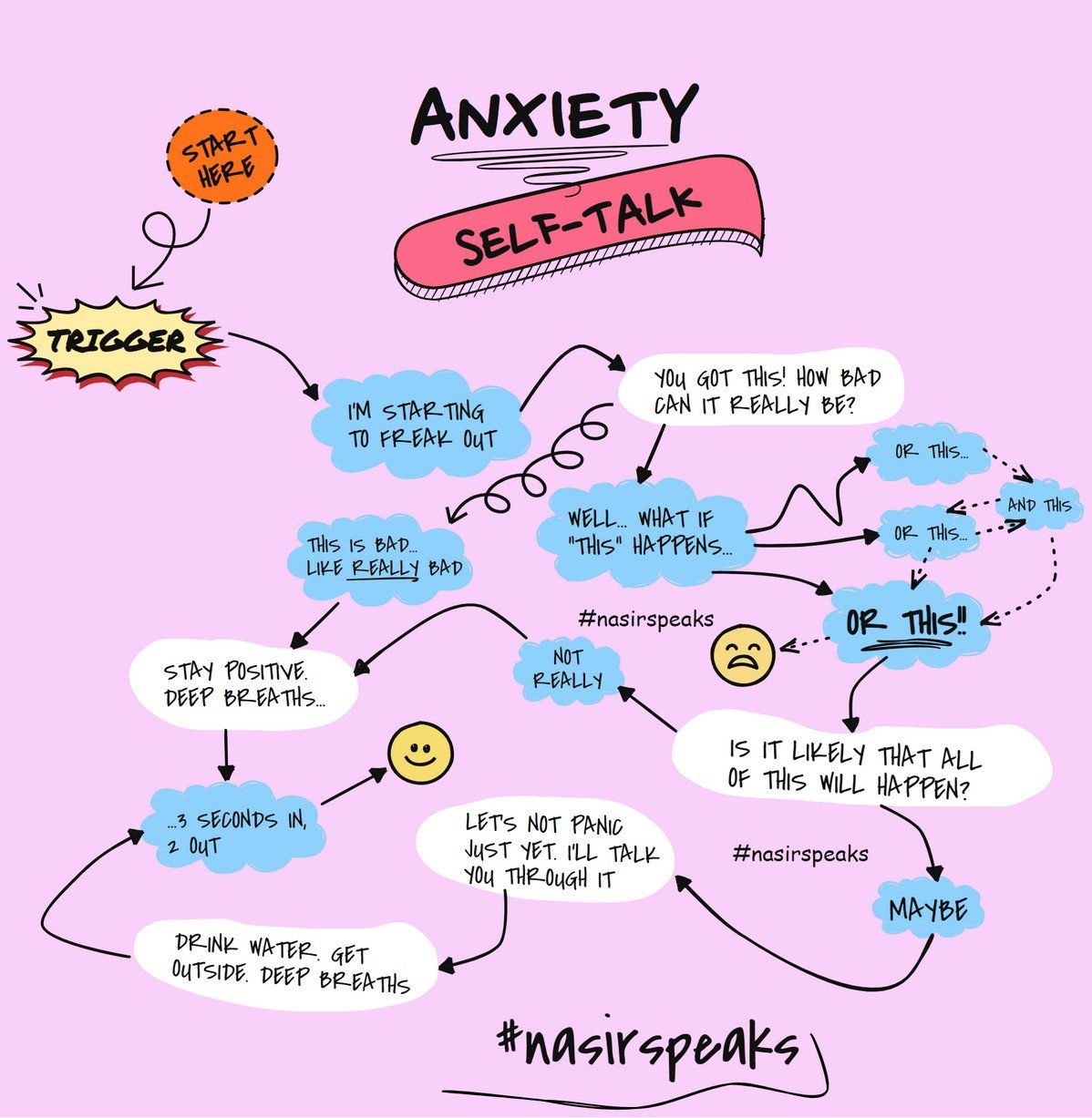In the fast-paced and demanding world we live in, it’s not uncommon to experience anxiety. How we talk to ourselves during moments of stress can significantly impact our mental well-being. In this article, we’ll explore the dual nature of anxiety self-talk, delving into both the negative and positive perspectives, and how cultivating a resilient mindset can make a world of difference.
The Negative Perspective: Recognizing the Pitfalls
- Catastrophizing: It’s easy to fall into the trap of imagining the worst-case scenarios. Negative self-talk fueled by catastrophic thinking can amplify anxiety, leading to a distorted perception of reality. Acknowledging this tendency is the first step towards breaking free from its grip.
- Self-Doubt: Negative self-talk often manifests as relentless self-doubt. Whether it’s questioning our abilities, worth, or decisions, these thoughts can erode our confidence and hinder personal growth. Recognizing and challenging these doubts is crucial for building resilience.
- Overgeneralization: Anxiety self-talk may involve making sweeping generalizations based on isolated incidents. This type of thinking can create a bleak outlook and hinder the ability to learn and grow from experiences. Identifying and challenging these broad assumptions can help regain perspective.
The Positive Perspective: Cultivating a Resilient Mindset
- Self-Compassion: Embracing self-compassion involves treating ourselves with the same kindness and understanding that we would offer a friend. Positive self-talk begins with acknowledging our struggles without judgment and recognizing that everyone faces challenges.
- Affirmations: Positive affirmations can be powerful tools to counteract negative self-talk. By intentionally focusing on uplifting statements about ourselves and our abilities, we can reshape our mindset and foster a more optimistic outlook.
- Mindfulness and Gratitude: Practicing mindfulness and gratitude can shift our focus from anxiety-inducing thoughts to the present moment and positive aspects of our lives. Regular mindfulness exercises and gratitude journaling can contribute to a more balanced perspective.
Strategies for Balancing Both Perspectives:
- Awareness: The first step towards change is awareness. Paying attention to our self-talk allows us to identify patterns and consciously choose to shift towards a more positive narrative.
- Challenge Negative Thoughts: Actively challenge negative thoughts by questioning their validity. Are they based on facts or assumptions? Are there alternative, more positive interpretations of the situation?
- Seek Support: Talking openly about our anxieties with friends, family, or a mental health professional can provide valuable insights and support. Sometimes, an external perspective can help break the cycle of negative self-talk.
Navigating the landscape of anxiety self-talk requires a commitment to self-awareness and resilience. By acknowledging the pitfalls of negative self-talk and actively cultivating a positive mindset, we can build the mental strength needed to face life’s challenges with confidence and grace. Remember, the power to transform self-talk lies within each of us, and with intentional effort, we can shape a more positive and resilient narrative.
#nasirspeaks #leadership #leadershipdevelopment #leadershipmatters #thoughtprovoking #thoughtsbynasir #anxiety #anxietymanagement #anxietyrelief







